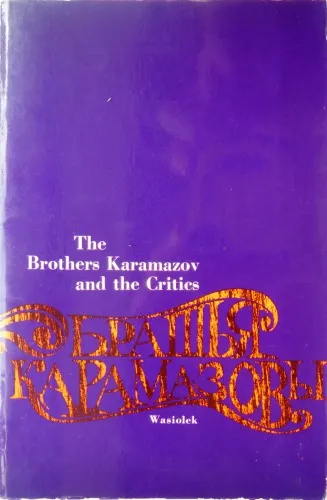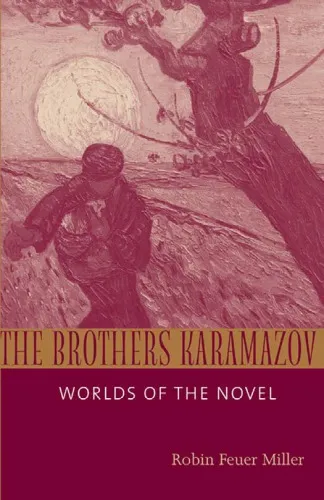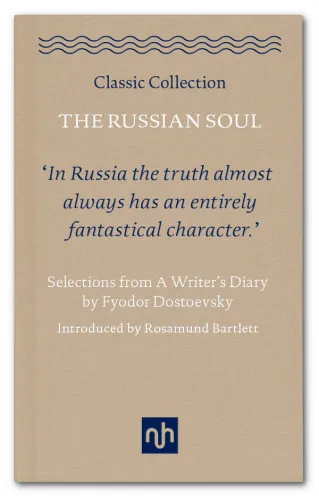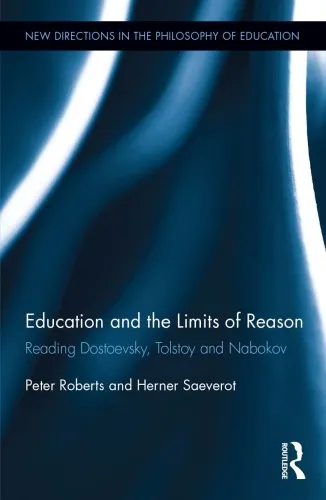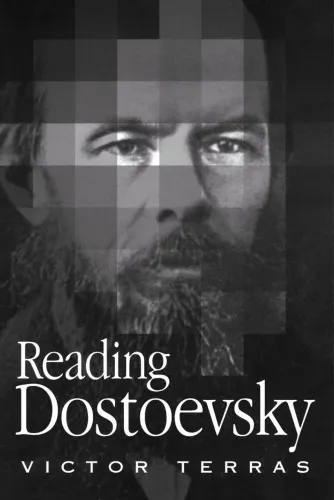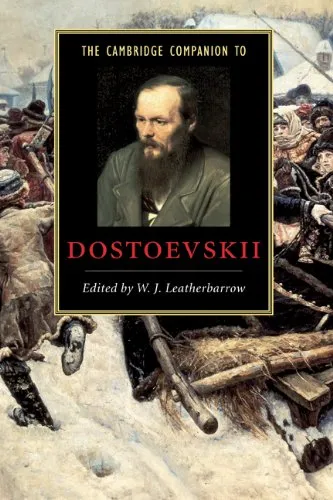The Brothers Karamazov and the Critics
4.0
Reviews from our users

You Can Ask your questions from this book's AI after Login
Each download or ask from book AI costs 2 points. To earn more free points, please visit the Points Guide Page and complete some valuable actions.Related Refrences:
Persian Summary
Welcome to an exploration of Fyodor Dostoevsky's monumental work through the lens of critical reception. "The Brothers Karamazov and the Critics" is an essential guide for understanding the complexities of Dostoevsky's masterful narrative and its impact on both contemporary and modern literary landscapes. This book serves as a critical companion to "The Brothers Karamazov," offering insights into the novel’s themes, characters, and its profound exploration of philosophical and existential questions. It also engages deeply with the robust body of criticism that has grown around Dostoevsky's text, providing readers with a comprehensive view of its critical heritage.
Summary of the Book
"The Brothers Karamazov" is Dostoevsky's final and arguably greatest novel, weaving a complex tale of familial strife, moral dilemmas, and profound human questions. This book dissects the elaborate narrative of the Karamazov family, focusing on the tumultuous relationship between the father, Fyodor Pavlovich Karamazov, and his sons Alyosha, Ivan, and Dmitri. Engulfed in a web of suspense, philosophical dialogues, and theological discourse, the narrative delves into themes of free will, faith, and redemption, culminating in a parricide that shakes the very foundation of the Karamazov family.
"The Brothers Karamazov and the Critics" brings together a wide array of critical perspectives, mapping out the critical journey that the novel has undergone since its publication. By presenting the novel’s critical reception over time, it showcases the shifting interpretations and assumptions that critics have made, offering readers a deeper understanding of the text’s perennial resonance and multidimensionality.
Key Takeaways
- The interrelation of faith, doubt, and reason is a central theme explored through the novel's characters and their existential struggles.
- "The Brothers Karamazov and the Critics" showcases the evolution of literary criticism related to Dostoevsky’s text, revealing how its interpretations have adapted over time.
- The book provides a panoramic view of the novel's influence on both literature and philosophy, illustrating its undiminished importance in diverse academic discussions.
- It highlights the universality of Dostoevsky’s questions and how they pertain to the human condition, transcending cultural and temporal boundaries.
Famous Quotes from the Book
“What is hell? I maintain that it is the suffering of being unable to love.”
“Above all, don't lie to yourself. The man who lies to himself and listens to his own lie comes to a point that he cannot distinguish the truth within him, or around him, and so loses all respect for himself and for others.”
“The mystery of human existence lies not in just staying alive, but in finding something to live for.”
Why This Book Matters
"The Brothers Karamazov and the Critics" is not just a scholarly endeavor but an indispensable resource for both students and enthusiasts of Dostoevsky’s work. It illuminates the myriad interpretations and scholarly debates that have surrounded the novel, offering readers a broader context to appreciate its rich complexities. The book underscores the timeless nature of Dostoevsky's narratives, as they continue to provoke thought and inspire discourse across various fields such as theology, philosophy, psychology, and literature. By engaging with this critical anthology, readers gain not only a better understanding of "The Brothers Karamazov" but also an appreciation for its indelible impact on literary history.
Free Direct Download
You Can Download this book after Login
Accessing books through legal platforms and public libraries not only supports the rights of authors and publishers but also contributes to the sustainability of reading culture. Before downloading, please take a moment to consider these options.
Find this book on other platforms:
WorldCat helps you find books in libraries worldwide.
See ratings, reviews, and discussions on Goodreads.
Find and buy rare or used books on AbeBooks.
1597
بازدید4.0
امتیاز0
نظر98%
رضایتReviews:
4.0
Based on 0 users review
Questions & Answers
Ask questions about this book or help others by answering
No questions yet. Be the first to ask!
